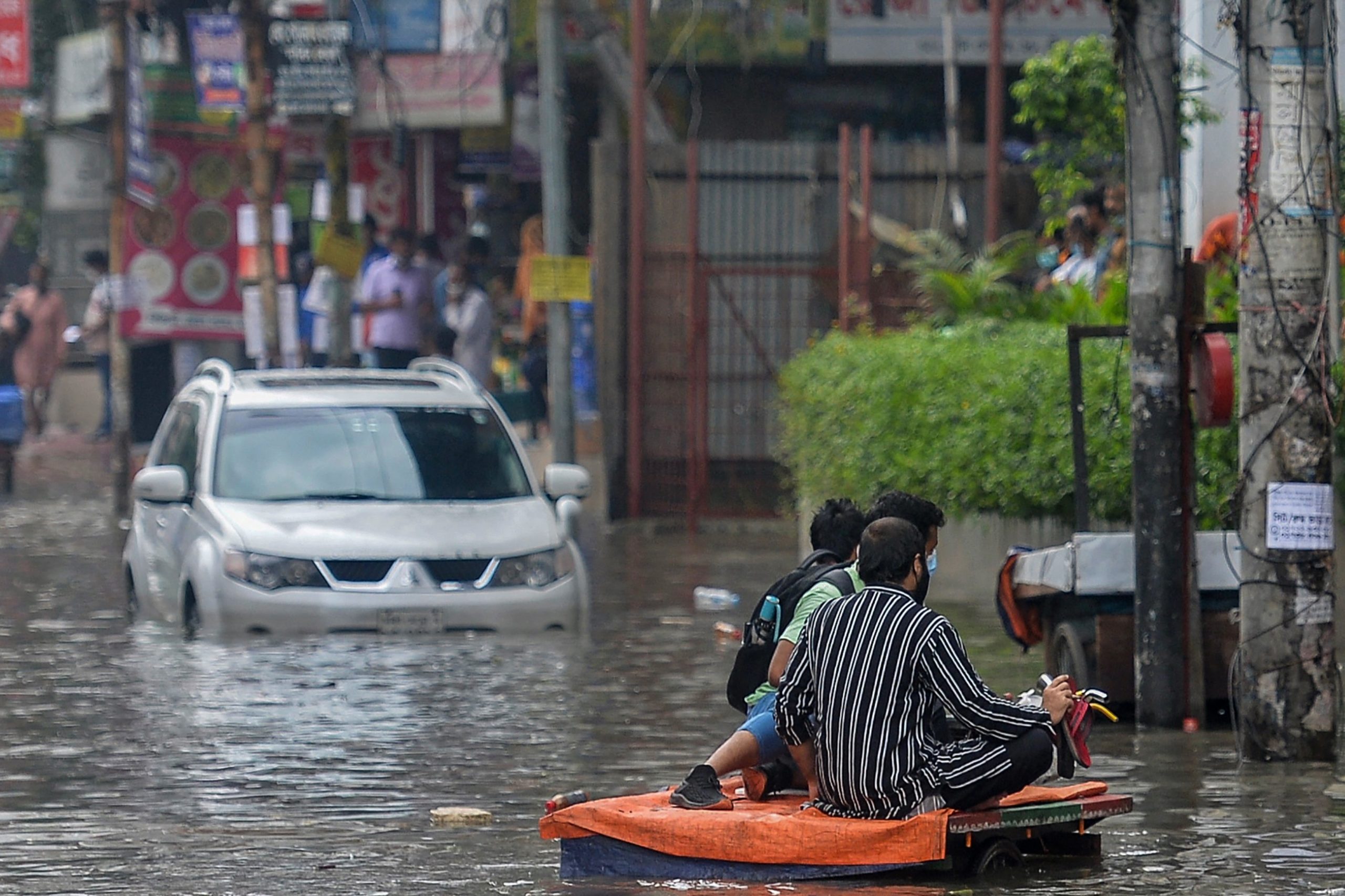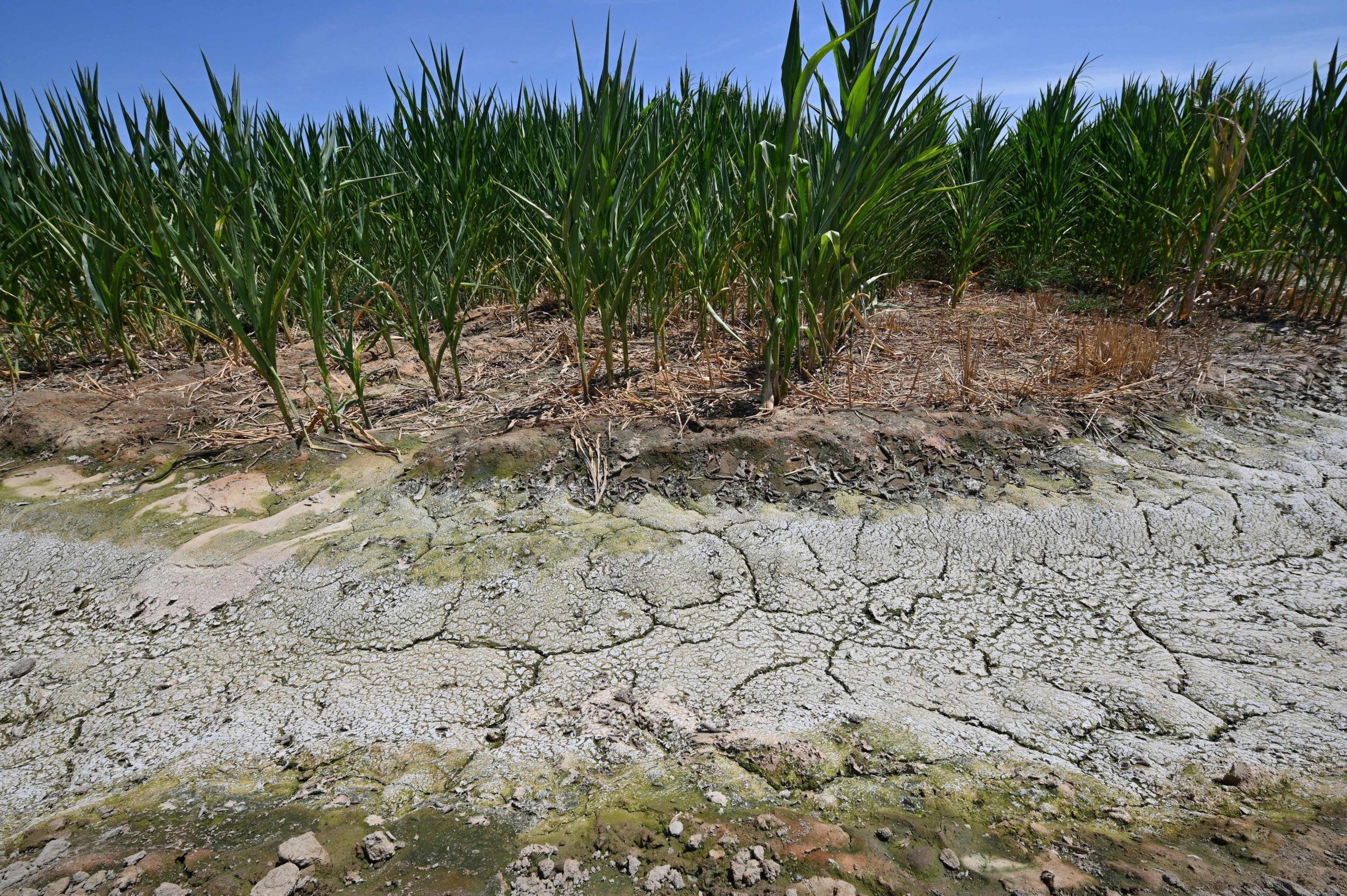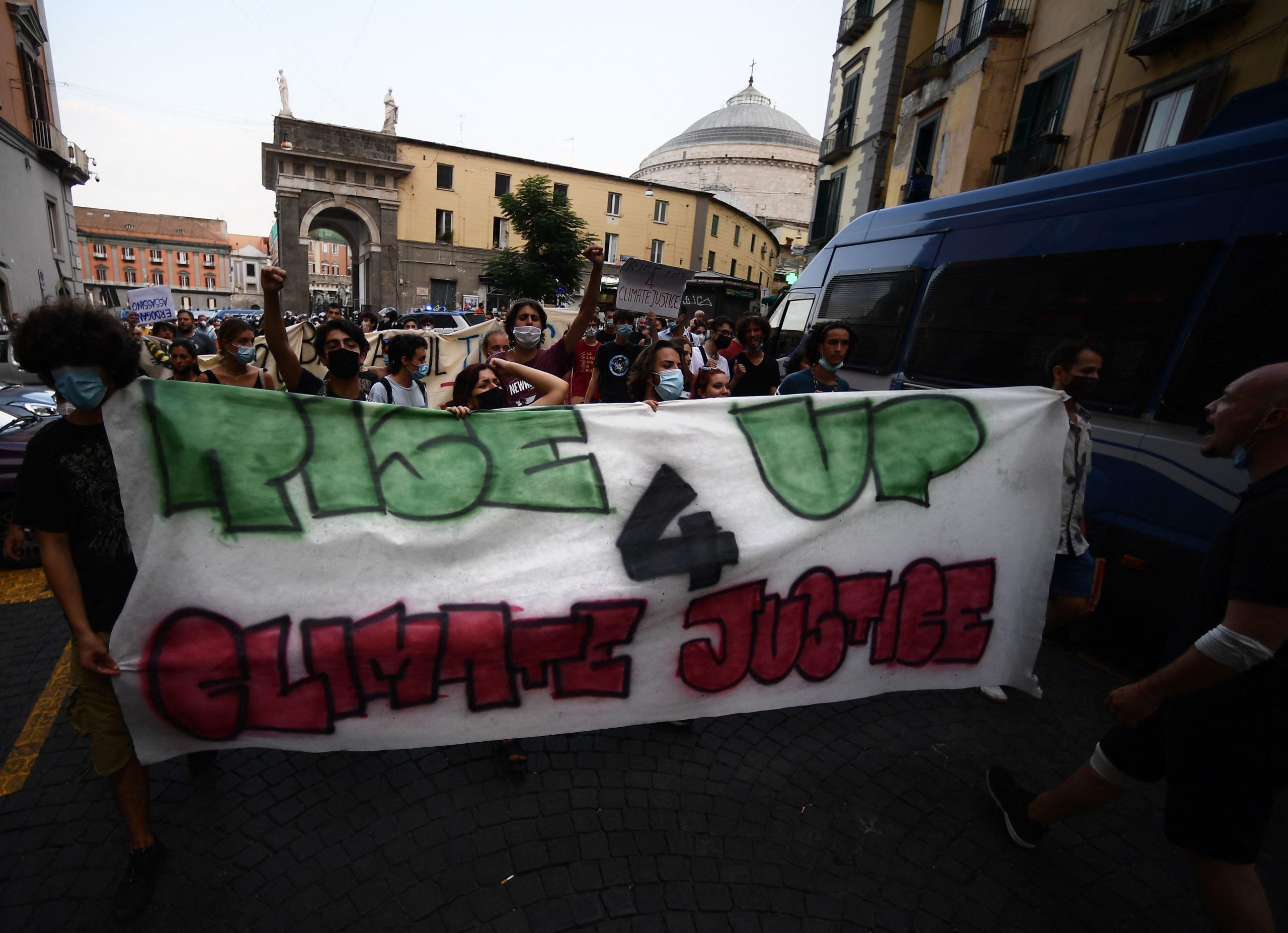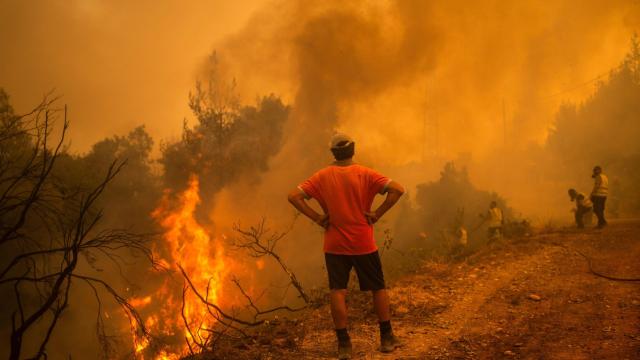The Intergovernmental Panel on Climate Change’s massive new report, published early Monday morning, makes it absolutely clear that the climate crisis isn’t waiting for us in some far-off future; it’s here right now.
“It is unequivocal that human influence has warmed the atmosphere, ocean and land,” the report says. “Widespread and rapid changes in the atmosphere, ocean, cryosphere and biosphere have occurred.”
We know what got us here: decades of greenhouse gas pollution, chiefly from the fossil fuel industry.
In case you don’t feel like combing through 4,000 pages, we’ve compiled five of the biggest takeaways from the report. If they leave you feeling downhearted, you’re not alone. But remember that the biggest factor in our climate future is how quickly we make changes.
“Every additional incremental of warming leads to … extreme events becoming more severe and more frequent. And these extreme events, like heat waves, extreme precipitation events, droughts — these are the things that really impact society, infrastructure, ecosystems,” said Greg Flato, a senior scientist with Environment and Climate Change Canada and report co-author. “They all go up with every increment of warming. The less warming we commit ourselves to, the less impact we commit ourselves to.”
We Can’t Stop Sea Level Rise — At Least, Not Immediately

The authors found that, in the past century, the seas have been rising at their fastest rate in 3,000 years. Over the last decade, the world’s oceans have risen at a rate of about 4 millimetres per year. There are two main reasons for this escalation: water expands as it warms, and glaciers and ice sheets are melting into the sea. From Florida to Bangladesh, this has caused untold suffering.
“This sea level rise is already impacting people around the world, and it’s led to a near doubling in the frequency of coastal flooding since the 1960s in many coastal sites around the world,” Bob Kopp, an IPCC co-author and director of the Rutgers Institute of Earth, Ocean and Atmospheric Sciences, told reporters on Sunday.
One of the IPCC’s most disquieting conclusions is that the sea level rise set in motion by the climate crisis will be irreversible for hundreds to thousands of years. But by urgently phasing out of fossil fuels and drawing down carbon emissions, we can limit the amount the oceans rise and slow the rate at which they do, protecting countless lives.
Warming Will Make Dangerous Heat Waves Commonplace

Thanks to global heating, heat waves that used to occur once every 10 years are now happening more than twice as often. And more extreme heat waves that once happened once every 50 years are now nearly five times more likely to strike, occurring roughly once a decade.
If world leaders don’t get it together to enact transformative climate policies and the world reaches 2 degrees of warming, those severe heat waves could be 14 times as likely to occur as they were in pre-industrial times. Heat waves are already the deadliest form of extreme weather.
Droughts Are Far More Common

The climate crisis is making droughts more frequent and more severe. There are a number of factors that led to this, including decreases in precipitation, earlier snow melt, and increased evaporation due to hotter temperatures, according to the new report, which was compiled by over 200 leading climate scientists from around the world.
The kind of extreme droughts that used to occur once per decade on average are now occurring 70% more frequently. If we allow the planet to reach 2 degrees Celsius of warming, these droughts will occur between two and three times as often as they did before we began emitting greenhouse gases.
Storms Are More Common, Too

The climate crisis is making some places far drier, but it’s making other regions much wetter, largely because warmer air can hold more water vapour. Heavy rains have become about 30% more frequent globally, and they contain about 7% more water on average, the report says. The report authors also say it is likely that the number of severe hurricanes and typhoons has increased since the 1970s due to the climate crisis.
Even if we limit heating to 1.5 degrees Celsius, heavy rain is projected to increase in Europe, North America, and most regions of Africa and Asia. But the more we let the planet warm, the more severe and frequent dangerous storms will be.
We Know What We Have To Do

Nothing in the new IPCC report is particularly surprising. But that doesn’t mean it’s any less of a gut punch to see it all spelled out.
The study shows that there’s basically no scenario — not even global eco-socialism implemented tomorrow — where the scientists are sure we can avoid 1.5 degrees Celsius of warming by the middle of the century, and that level of warming, a major 2018 IPCC report showed, will be absolutely brutal.
But just as important is another conclusion: If we rapidly and urgently decarbonize every sector of the economy, we can push temperatures back downward by the end of the century and avert the worst consequences of the climate crisis.
“What we’re doing by acting aggressively, soon, is making sure that these next two decades of warming may be some of our last, and we are reserving the right to potentially begin cooling globally later this century,” Kim Cobb, report co-author and a coral researcher at Georgia Tech, said on Sunday’s press call.
If we want to reach that global cool-off, we don’t have time for empty rhetoric or half-measures.
“The most concerning thing is just how little time is left to act if we want to stabilise temperatures,” said Flato.
